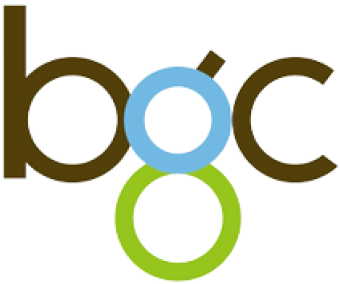In today's fast-paced world, where almost every business is borderless, Human Resources (HR) compliance is non-negotiable for any company. This is especially true for companies expanding in the Asia-Pacific (APAC) region. With over 60 countries, each with distinct regulations, HR advisory becomes a necessity for businesses to navigate the complex compliance landscape.
This blog delves into the top HR compliance challenges that businesses encounter while expanding globally, providing practical solutions along the way.
Identifying Common HR Compliance Challenges
Understanding HR compliance can be challenging, especially for companies expanding into new markets. There are two major challenges that companies face in their expansion journey:
1) Diverse Employment Laws
For businesses that operate in multiple countries, staying on top of a diverse set of regulations can be challenging. Whether it's navigating talent acquisition or handling termination procedures, understanding and adhering to these laws is important to steer clear of any legal issues or hefty penalties.
2) Cultural Sensitivities
In addition to employment laws, complying and respecting cultural differences play a vital role in creating a harmonious work environment. Failing to do so may result in internal conflicts and transgression of norms. For example, what's considered acceptable in one country might be seen differently in another. These cultural differences can impact how team members relate to each other, potentially causing friction.
Navigating through these challenges requires implementation of the right employment practices and fostering cultural awareness.
Ensuring Fair Employment Practices: HR Compliance Essentials
1) Diversity and Inclusion Initiatives
When organizations embrace diversity and inclusion, they benefit from a diverse range of perspectives. Moreover, these practices go beyond just meeting legal requirements– they create a motivated and engaged workforce. This approach creates a culturally aware workplace that not only prevents internal conflicts but actively promotes a positive organizational culture.
2) Training Programs
Have regular training sessions about equal employment and anti-discrimination policies. This helps educate employees and lowers the chances of breaking any rules. Practically, this can be performed as part of an employee onboarding or as part of a specific career development plan.
Now that we know how to resolve cultural conflicts in a global business environment, let’s talk about another major HR challenge faced by global businesses– diverse and changing labor laws. In the APAC region alone, each of its 60+ countries has unique employment acts, leave regulations, employee benefits structures, employer costs, tax systems, and more. This creates a multifaceted compliance landscape that businesses must navigate to ensure regulatory adherence and operational success.
Navigating Changing Labor Laws: A Key HR Compliance Challenge
A few effective ways to adapt to changing labor laws include:
1) Regular Training for HR Teams
Continuous education is essential. Regular training programs for HR teams ensure they stay updated on the latest labor laws. These training programs often involve understanding new regulations, compliance requirements, and shifts in how employment practices are implemented.
2) Seeking Legal Counsel
Engaging legal experts is a must for every business and isn’t limited to only the well-established ones. Legal professionals specialize in interpreting and understanding complex labor laws. They’ll also help you strategize the best course of action in challenging situations.
3) Leveraging Industry Networks
Industry networks often share updates and insights on changing labor laws which help you gain a collective understanding of how others are adapting to the changes.
While we’re on the topic of discussing the major challenges associated with HR Compliance, it’s crucial to bring up the importance of employee documentation. Often overlooked by most businesses, making sure employee documentation is in order is extremely important for HR compliance. It leads to smooth operations and reduced risks.
Businesses can follow a couple of proactive strategies for employee documentation compliance:
1)Centralized Document Management
Keep all employee documents in one central system. It will help in two ways:
- Easy Access
Having everything in one place makes it simple to find what you need, whether it's for onboarding new hires or answering employee questions.
- Following Data Protection Laws
By keeping things centralized, it's easier to control and protect sensitive employee information. This is crucial as data protection laws keep changing, and it's key to stay compliant.
2) Regular Audits
It’s imperative to check employee documents regularly. This will allow you to:
- Spot Gaps:
Regular checks help identify any missing documents or gaps in records. Fixing these issues early on prevents bigger problems later.
- Stay Compliant:
Laws about employee records can change rapidly. Regular audits make sure records are up-to-date and in compliance with relevant regulations.
As we have already established, keeping up with diverse HR compliance challenges is quite a task in itself. Now, it's time to bridge the gap between staying informed and adopting the latest technology solutions. Using advanced HR systems and software is like opening a door to countless possibilities—from automating HR tasks to reducing the chances of errors. This shift to technology is more than a modern convenience; it's a necessity.
Making use of advanced HR management systems and software can completely transform how HR tasks are handled. These tools automate processes, from onboarding new employees to managing data. They create a central hub for storing and accessing employee information, making compliance-related tasks more efficient.
By automating repetitive tasks like data entry and compliance reporting, businesses can significantly reduce the chance of errors. This not only improves the accuracy of human resource compliance processes but also allows HR professionals to pay attention to more strategic aspects of their roles.
How can BGC help you?
BGC Group specializes in EOR and HR administrative services in the APAC region, offering customized solutions to address the unique compliance needs of various companies.
With BGC Group's assistance, businesses can:
- Easily follow diverse employment laws in the APAC region.
- Get guidance on handling cultural sensitivities from experienced professionals.
- Simplify employee documentation using centralized systems.
- Stay updated on changing labor laws through continuous monitoring and legal insights.
- Adopt technology solutions for better HR compliance management.
BGC Group's expertise ensures businesses can thrive while staying compliant in the modern business world. Reach out to us for more details.




